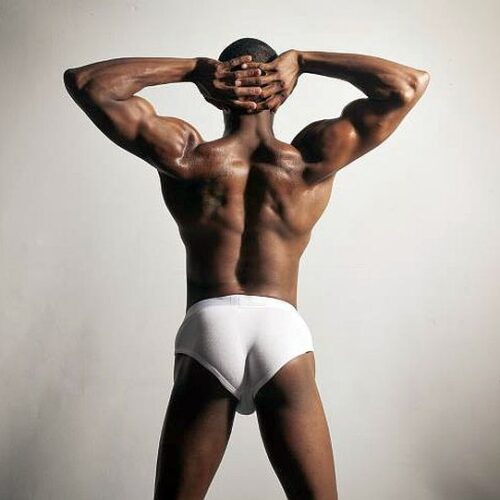A Review of the Recent Kenyan High Court Judgment Against Homosexuality
On 24th May, 2019, a High Court of Justice sitting in Nairobi, Kenya, shocked Kenyan LGBT activists and their supporters around the world when it refused to strike down the anti-gay provisions of that country’s Penal Code.
I have not read the full text of that judgment. I’m only working with snippets made available to us by the media. Be that as it may, I think the reason why I was particularly jolted by the news of that judgment was because here in sub-Saharan Africa, Kenya in recent times has become such a beacon of hope for the rest of us in the community. The country has been enjoying something like a rollercoaster of victories in the recent past.
It was victory for the transgender community in 2014, when a High Court in that country held that a transgender activist, Audrey Mbugua, has the right to have her school certificate reissued with her female name, and with no gender marker. Another judgment of the High Court in the same year compelled the NGO Board to register Transgender Education and Advocacy (TEA), a non-governmental organization led by Mbugua.
Then, in 2015, the same High Court held that the National Gay and Lesbian Human Rights Commission (NGLHRC) could formally register with the state, overruling a government body that had rejected its application on the grounds that its name was “unacceptable”.
In 2018, the Kenyan Court of Appeal held that forced anal exams on people charged with consensual homosexual activity violate the prohibition on torture and cruel, inhuman, and degrading treatment and are therefore unconstitutional.
Earlier in 2016, Eric Gitari, an activist who was the president of NGLHRC filed a petition challenging articles 162 and 165 of the Kenyan Penal Code. We all thought that the death knell has already been sounded on the two draconian colonial laws.
Then, the court struck!
Article 162 of the Kenyan Penal Code penalizes “carnal knowledge against the order of nature” with up to 14 years’ imprisonment, while Article 165 penalizes “indecent practices between males” with 5 years’ imprisonment.
Now in summary, the court held that articles 162 and 165 of the Kenyan Penal Code are not discriminatory because they do not specifically mention or single out LGBT people.
On the face of the judgment, this legal reasoning appears to be very sound. But it isn’t. And I’m going to attempt to explain why.
Let me start by attempting a working definition of discrimination.
Discrimination has been defined as the unjust or prejudicial treatment of different categories of people on the grounds of race, nationality, age, sex, sexual orientation, HIV status or any other status. It amounts to treating a person or a particular group of people differently, especially in an inferior way and this treatment cannot be objectively and reasonably justified.
Discrimination can be direct or indirect.
We are more concerned here with indirect discrimination. Indirect discrimination describes the situation where state or none state actors make an apparently neutral decision, or put in place a particular policy, practice or procedure, which appears to treat everyone equally, but which in practice has a disproportionate negative impact on the people against whom it is unlawful to discriminate, without objective justification.
A few examples of indirect discrimination will suffice here:
1. Company X’s policy states that in order to be entitled to promotion, everyone must work full-time and without a paid leave. This is indirect discrimination against women because though the policy did not specifically mention or single out women, it has a disproportionate negative impact on women because they go for maternity leaves and are more likely to work part-time due to family responsibilities.
2. If Company X decides to introduce a policy of once-in-a-year mandatory blood donation for all staff of the company as part of its corporate social responsibility to the health sector, this could pass for an apparently neutral decision because on the face of it, it treats everyone equally. But John, a Jehovah’s Witness staff of the company can complain that the policy, even though it did not have him in mind, will have a disproportionate negative impact on him more than anyone else specifically because of his religion. On that ground, the policy can be declared indirectly discriminatory against John.
3. Assuming the government decides to introduce a law that criminalizes anyone who works and socializes with his hands “against the order of nature”, in the sense that he does not use his right hand as his dominant hand, that law will be indirectly discriminatory to left-handed people. This will be so because though the law does not specifically mention left-handed people, and though it appears to treat everyone equally, the law will invariably end up having a disproportionate negative impact on left-handed people more than on right-handed people.
It is clear that there is nowhere in Articles 162 and 165 of the Kenyan Penal Code where LGBT people were mentioned. The law appears to be neutral and applies equally to everyone. However, going by the illustrations above, it is also clear that the law has a disproportionate negative impact on gay men since they, more than heterosexual people, are the ones who are intrinsically disposed to engage in the kinds of sexual activities referred to in Articles 162 and 165. Heterosexual people may sometimes want to forage into anal sex with their partners. Anal sex, however, does not define heterosexual sexual activities. For gay men, on the other hand, anal sex and “indecent practices between males” is the very definition of their partnered sexual experiences. It is for this reason that the law is discriminatory and ought to have been struck down by the court on that ground.
Assuming this argument was made before the court and their Lordships of the High Court were not persuaded by it, they should have been persuaded by the evidence led by activists to the effect that the law has been used to justify employment and housing discrimination, suspension and expulsion of students from schools, censor artistic expressions related to LGBT issues and to prevent LGBT organisations from registering, as clearly happened in the NGLHRC’s case in 2015. There was no evidence in rebuttal by the Defendant showing that the same law was used against heterosexuals the same way it is being used against homosexuals.
It was a sad day for all us. But the struggle continues.
LGBT activists in Kenya have already vowed to appeal that Judgment. We hope that unlike the judges of the High Court, the Justices of the Court of Appeal will not feel bound by social morals and traditionalist considerations in their dispensation of justice in the appeal.
I end with a quote I came across while reading the news of the event from an online source. It talked about giving credit to Kenyan activists loudly contesting the legal discrimination they face. It then went on to say that:
“…we can also credit the ways both activists and non-activists assert themselves in their family homes, schools, offices, health centers, and countless other spaces across the country, giving the lie to the notion that LGBT people are inherently foreign. In that way, they draw a contrast between themselves and the laws that devalue them.”
I look forward with anticipation to the day when all colonial laws in Africa which reinforces the message that sexual minorities are second class citizens, worthy of derision, rejection, and, sometimes, violence shall be repealed and consigned to the dustbin of history.
Written by Legal Koboko
About author
You might also like
Opinion: What Does Being a “Power Bottom” Really Mean?
“Tops fuck bottoms, but power bottoms fuck tops.” – Originally published on NewNowNext.com As queer people, we’ve all heard the term “power bottom.” Its usage implies a superior bottom
Do You Know A Fuckboy?
Fuckboys are guys who are strictly into sexual relationships. They have sexual partners that want them even though they know all they want them for is the sex. There are
THE FAIRY GODMOTHER
My friend, Pelumi (for the purpose of this story) was a 28-year-old virgin (of sorts) as at three years ago. He had never had sex; foreplay, yes, and a bunch










3 Comments
Fred
June 03, 06:05LGBT rights group there have a tall task in demolishing the semantics inhibiting their total victory. They’ve come too far to give up.
Mandy
June 05, 10:24This is brilliantly written!!! ???
The acute disappointment I felt from that Kenyan court ruling made me realise how much I’d been banking on a victory for them. A victory which would serve as a precedent for all other LGBT equality fights in the rest of the homophobic African countries.
We shall not lose hope though. We must keep fighting.
Thank you, Legal Koboko.
Legal Koboko
June 10, 06:15You are welcome Mandy ?